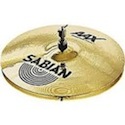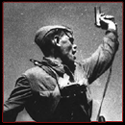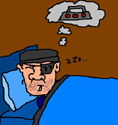|
The Dark Wind posted:Anyone have any recommendations for short but somewhat flashy pieces? I'm thinking of anything along the lines of Etincelles by Moszkowski, for example. How about Solfeggietto, by C.P.E. Bach?
|
|
|
|

|
| # ? Apr 27, 2024 16:50 |
|
Copyright generally runs out something like 70 years* after the death of the creator, almost every original manuscript is in the public domain if it was created pre 1900. If it has been arranged by someone who hasn't been dead 70 years, then their arrangement is still copyrighted. *How many years may depend on where you live and how much that nation hates you.
|
|
|
|
OneSizeFitsAll posted:How about Solfeggietto, by C.P.E. Bach? This piece is super fun to play. It's deceptively easy too, aside from cranking the speed up it's just one note at a time in fairly sensible chord arpeggios.
|
|
|
|
Ror posted:This piece is super fun to play. It's deceptively easy too, aside from cranking the speed up it's just one note at a time in fairly sensible chord arpeggios. Yeah, it's a blast, and it sounds quite flashy at high speeds while at the same time not being especially hard. The main challenge is in getting everything even.
|
|
|
|
Cast_No_Shadow posted:Copyright generally runs out something like 70 years* after the death of the creator, almost every original manuscript is in the public domain if it was created pre 1900.
|
|
|
|
OneSizeFitsAll posted:How about Solfeggietto, by C.P.E. Bach? This piece is cool but it is on the easier side of the whole repertoire. If you can play Mozkowski, here's a slightly harder piece in the same vein as Solfeggietto: Here's Richter playing it properly, and incredibly fast: https://www.youtube.com/watch?v=1GXHjxvSi24 Here's an autistic savant who was probably the greatest pianist of our time flipping it the gently caress on it's head: https://www.youtube.com/watch?v=hkg0aQxsKlU It's the C-Minor prelude from Book I Well-Tempered Clavier. It's kind of like Solfiegietto with both hands simultaneous. (I'm performing it tomorrow oh god oh god oh god) (I haven't performed since 2004) (Maybe I'll make you all a video in an hour or so)
|
|
|
|
Ah, that's a fun piece, I learned it a couple of years back along with the fugue it's associated with, very fun to play, and there's deceptively large amount of depth to both pieces, despite both of them having a pretty constant texture throughout the length of each piece. Definitely looking for pieces along that line. The Solfeggietto is fun but it's a little too easy/light in terms of what I'm talking about. I'd like something arguably pretty technically challenging, but without it being Feux Follets or a Toccata either.
|
|
|
|
I might agree with the C Minor Prelude being an option, but I'm not so sure because of the presto section. This section is extremely flashy and awesome but I would not call it easy by any stretch. I've worked on it on and off for almost 8 months and am not anywhere near playing it properly. I would probably have to practice that section alone an hour a day for about a month extremely slowly and gradually ramping up the tempo to get it. It requires hours upon hours of careful practice to play hands together in a synchronized manner at 120-132bpm. In fact if you can do this section properly it means you've more or less conquered the hurdles to all future hands together passages of rapid notes. There are some people who can never play this presto section because here you are hitting the hard limits of dexterity for some people. Solfeggietto is way easier.
|
|
|
|
The Dark Wind posted:Ah, that's a fun piece, I learned it a couple of years back along with the fugue it's associated with, very fun to play, and there's deceptively large amount of depth to both pieces, despite both of them having a pretty constant texture throughout the length of each piece. Definitely looking for pieces along that line. The Solfeggietto is fun but it's a little too easy/light in terms of what I'm talking about. I'd like something arguably pretty technically challenging, but without it being Feux Follets or a Toccata either. Fair enough - I'm not familiar with piece you mentioned, so wasn't quite sure the kind of level you were talking about. Elephunk's suggestions are great.
|
|
|
|
I don't know who you're trying to impress with "flashiness" for a short piece. But you'd never impress me with Prelude in c minor. It's very easy. Even at a blistering tempo (which is kind of ridiciulous) I'd much prefer to listen to other "difficult" music. Play Chopin Etude Op 10 No.4 and I'll be impressed 
|
|
|
|
Yeah I wouldn't say the C Minor prelude's presto section is that impossible as far as passagework; Bach saved the hard stuff for the keyboard concertos. It's a cool piece though. I'm also partial to the G major prelude from book 1, which is also a bit showy. Good fugue, too, possibly my favorite from WTC1. For harder stuff, plenty of the Chopin Etudes fit. The Butterfly Etude is a classic encore piece, and gets bonus points for being proto-ragtime.
|
|
|
|
I've only been a student for less than a year, but that C Minor presto section is the hardest thing I've encountered so far by a mile. Of course, there are levels upon levels of piano music. The main things I've tackled so far are WTC preludes and one fugue. I realize it is easy in comparison to a Chopin Etude - I've seen the passage work for virtuoso romantic literature. But where would that prelude fit on a graded scale? I have some RCM graded books and it's harder than anything I've seen in level 7, but I don't know how that compares to other grade systems. In any case, flashy and semi-easy is very relative to your skill level. I would think a Chopin Etude would lie above a graded system, being something that only lifelong dedicated students could attempt to play. It's hard to give a good answer without knowing what level he is currently playing at. I quadruple the ante and say that if you can play Alkan's Grand Sonata, you win the prize: https://www.youtube.com/watch?v=MRFGIUN2MLA https://www.youtube.com/watch?v=Py7BxB51OTA https://www.youtube.com/watch?v=p8LOOB9BFSo (8 voice fugue!) https://www.youtube.com/watch?v=25KZy39eMa4 https://www.youtube.com/watch?v=LxYg66z8dCk https://www.youtube.com/watch?v=aqGn86ZPdIA For something even more insane, go look for his Concerto for Solo Piano, which is 50 minutes of music about as hard as the above. https://www.youtube.com/watch?v=VIEhFsi6hF8 - 3rd Movement live CowOnCrack fucked around with this message at 05:55 on Mar 14, 2013 |
|
|
|
Annies Boobs posted:I don't know who you're trying to impress with "flashiness" for a short piece. But you'd never impress me with Prelude in c minor. It's very easy. Even at a blistering tempo (which is kind of ridiciulous) I'd much prefer to listen to other "difficult" music. I've never been able to get Op 25 No 11 to look effortless despite my best efforts. That's my go-to "flashy" piece. http://en.wikipedia.org/wiki/%C3%89tude_Op._25,_No._11_(Chopin)
|
|
|
|
Annies Boobs posted:I don't know who you're trying to impress with "flashiness" for a short piece. But you'd never impress me with Prelude in c minor. It's very easy. Even at a blistering tempo (which is kind of ridiciulous) I'd much prefer to listen to other "difficult" music. I've also played that piece for a recital a while ago! I'm currently working through the Black Keys Etude now, and I'm almost done with Op. 25 No. 2 as I mentioned earlier. Unfortunately the keyboard I've been practicing on is just terrible, but hopefully I'll be getting a new instrument this weekend, and then I will be able to fully flesh out some of these pieces I've been working on. Anyways, the point of my original post was to possibly unearth some more obscure virtuosic pieces that aren't too large. I'm not really trying to impress anybody, I just like challenging pieces. My attention span is all over the place, and when I try to learn something larger like say, a Chopin ballade, I just end up getting distracted half way through and start working on something else. Some of the shorter Etudes like the ones I mentioned at the beginning of my post work really nicely, they have one straightforward technical challenge and have a lot of material that repeat, so learning them is a matter of simply working on that one technique for a couple of weeks till you get it down. That's not including the interpretative aspect of the work which obviously takes a much longer time, but that's an entirely separate issue. Edit: Alkan might be a potential contender. I honestly don't know much about his music outside of his Etudes, so if there are any other smaller works he wrote that aren't inhumanly difficult to play, that could be a pretty good fit. reversefungi fucked around with this message at 09:42 on Mar 15, 2013 |
|
|
|
The Dark Wind posted:I've also played that piece for a recital a while ago! I'm currently working through the Black Keys Etude now, and I'm almost done with Op. 25 No. 2 as I mentioned earlier. Unfortunately the keyboard I've been practicing on is just terrible, but hopefully I'll be getting a new instrument this weekend, and then I will be able to fully flesh out some of these pieces I've been working on. Anyways, the point of my original post was to possibly unearth some more obscure virtuosic pieces that aren't too large. I'm not really trying to impress anybody, I just like challenging pieces. My attention span is all over the place, and when I try to learn something larger like say, a Chopin ballade, I just end up getting distracted half way through and start working on something else. Some of the shorter Etudes like the ones I mentioned at the beginning of my post work really nicely, they have one straightforward technical challenge and have a lot of material that repeat, so learning them is a matter of simply working on that one technique for a couple of weeks till you get it down. That's not including the interpretative aspect of the work which obviously takes a much longer time, but that's an entirely separate issue. Have you looked at Liszt's Grand Galop Chromatique? Think it might be a bit OTT in its difficulty, but could be worth a mention.
|
|
|
|
The Dark Wind posted:Alkan might be a potential contender. I honestly don't know much about his music outside of his Etudes, so if there are any other smaller works he wrote that aren't inhumanly difficult to play, that could be a pretty good fit. I was only half serious. He has smaller less inhumanly difficult works but if you want to go to extremes, there it is. Strangely enough, while being notorious for being the most difficult music to play, Alkan's compositions put music first - a very simple, beautiful, and even naive music that just happens to be cloaked in octaves, tremolos, and 4/5-note chords. In all of his insanely difficult music I struggle to think of one that is 'showy' or 'flashy' except visually of course, in which they all are. https://www.youtube.com/watch?v=2XMSxnAqLJc Not short, but similar in nature to the Winter Wind Etude yet the story of the piece is just a tone painting of a very simple scene "Fire in the Neighboring Village." Will the poor villagers survive? edit: hah, here's one: https://www.youtube.com/watch?v=anM5TKIvUZA Good luck though :[ CowOnCrack fucked around with this message at 00:53 on Mar 16, 2013 |
|
|
|
I've been having some trouble getting a good practice routine going and making progress recently, and thought I'd check if anyone had any advice. I've been working on the Solfeggietto mentioned a few posts back, and just not making much progress with putting together the individual pieces, particularly with the bigger jumps up and down the piano. Any thoughts for someone who's not really a beginner anymore, but who's experiencing some really slow/nonexistent progress?
|
|
|
|
I've been trying to start practicing a lot more these days, but something that's really bugging me is that, for certain passages, my fingers play really unevenly in terms of tempo. For example, with the left hand part of the Revolutionary etude, whenever I need to play "1 3 2 3 1 2" at the top of the arpeggiated chord, I notice that it's not always even. It's true for other pieces that I learned a long time ago and am trying to relearn too, and it bugs the hell out of me! What kind of exercises are good for working out these kinks?
|
|
|
|
the Paper posted:I've been trying to start practicing a lot more these days, but something that's really bugging me is that, for certain passages, my fingers play really unevenly in terms of tempo. For example, with the left hand part of the Revolutionary etude, whenever I need to play "1 3 2 3 1 2" at the top of the arpeggiated chord, I notice that it's not always even. It's true for other pieces that I learned a long time ago and am trying to relearn too, and it bugs the hell out of me! What kind of exercises are good for working out these kinks? Try playing in rhythms, so (say) if you have a run of 8 counting in 4, you could play it 1- 2345- 6787- (etc) and then 12- 3456- 7876- (etc), where the dashed note is held longer than the others. You could pretty easily change this around and do it in 3, in 5, etc.
|
|
|
|
The Leck posted:I've been having some trouble getting a good practice routine going and making progress recently, and thought I'd check if anyone had any advice. I've been working on the Solfeggietto mentioned a few posts back, and just not making much progress with putting together the individual pieces, particularly with the bigger jumps up and down the piano. Any thoughts for someone who's not really a beginner anymore, but who's experiencing some really slow/nonexistent progress? The Leck posted:I've been having some trouble getting a good practice routine going and making progress recently, and thought I'd check if anyone had any advice. I've been working on the Solfeggietto mentioned a few posts back, and just not making much progress with putting together the individual pieces, particularly with the bigger jumps up and down the piano. Any thoughts for someone who's not really a beginner anymore, but who's experiencing some really slow/nonexistent progress? What Kolodny said is very effective. Also, accenting different parts of the beat as you play these variations is a good idea. So for example, you might start with accenting the downbeat, then beat 2, beat 3, etc. This helps your fingers feel comfortable playing every note equally loud (if necessary). Try also reversing articulations. If something is meant to be played legato, play it staccatisimo instead and vice versa. This conditions your fingers to feel comfortable playing the notes lots of different ways and, in the case of legato for example, helps you learn to not be too legato and have a clean break between notes. Always practice no faster than you can do it cleanly or slightly above to explore faster motions. Relaxation is absolutely key to playing things rapidly. When doing these variations, always aim for relaxation. If you can't relax yet then do it until you've found a good motion, then practice relaxing with that motion, at slower speeds if necessary. To find those faster but comfortable motions, experiment and always select motions that are the most effortless and the most sensible. A lot of fast things are easier to play than they first appear because they use different motions that you won't be familiar with yet as a learning player until you master them. If you aren't familiar with a 'chord attack' this helps explain why. How hard is to play something at 160bpm? Just roll your fingers down the keyboard. Or play a chord, boom, infinity bpm. The motions for playing things at rapid speeds are different than slower speeds so be wary of practicing slowly and trying to increase the speed with the same motions because you will run into a speed wall. How do you find these new motions? Well, it may sound complicated but, it really isn't. Trust your creativity and try things out. Just try those chord attacks and go with hand shapes and motions that are effortless. Give anything you can come up with a try but go with the one that meets those criteria. If you are doing something which is causing undue strain, or doesn't help you play that fast consistently, then you haven't found a good approach yet. If you've done it a ton of times and still no dice then you are definitely barking up the wrong tree - don't continue to push it hoping you will be able to play quicker with more practice. This is a bad idea. Do you want to know why you haven't found those motions? Because of course they exist! Because there are pianists who play this stuff (and guys like Hamelin, LOL) with minimal effort and you can too. They didn't put lots of time into painful motions, they just found better ones and you just need to find them. Also, you should always set up what you are going to play before you play it - the work should be largely done before you play the notes. If necessary, constantly and in a relaxed fashion change your hand position, your hand curvature, and which part of your body you are using (finger joints, knuckles, wrist, forearm, arm, shoulder, etc.) from note to note if necessary. This shouldn't be hard to do at all - in fact, even though it sounds crazy, it's actually way easier than alternatives like trying to make everything work with a couple of motions. I find my biggest problem is I could make things I am playing much easier than they are, but sometimes subconsciously choose something that is a lot more challenging than it needs to be thinking I am developing technique. Maybe to some marginal extent, but it's a lot wiser to choose the easiest motion possible. That is, if you plan to ever play that particular piece and not pull your hair out in disgust and disappointment. Glenn Gould once said that he could teach you everything about how to play piano in 30 minutes. Probably true.
|
|
|
|
Would playing scales at all or any other basic exercises (ie not piece-specific practicing) help at all? Or should I just focus passage by passage?
|
|
|
|
the Paper posted:Would playing scales at all or any other basic exercises (ie not piece-specific practicing) help at all? Or should I just focus passage by passage? Scales are probably the most useful of exercise - always practice these. Plus, if you play the piano, you should be able to play all of those scales 100bpm anyway (I can't, but..)! Next up is Etudes which are both cool to play and useful for improving technique. Other exercises (like Hanon) are more specific and less universally useful. If you are working on technique in difficult music though, you are probably getting enough overall technique unless you have a specific thing you need to work on. I think other exercises can be useful if it narrows in on a very particular problem you are experiencing. I have had trouble in the past accenting beats properly, so I took your basic Hanon exercise and practiced playing different notes as the "downbeat" with other notes dynamically in proper relationship to it. I've also used a variety of Hanon exercises in H.S. practice for things like trilling between certain fingers, or just weakness/weird issues between fingers. I personally don't do much H.T. Hanon stuff, since I'd rather do the ones that are tough for the L.H. with the L.H. and same with R.H. Often one exercise is way easy for one hand because of the typical things that hand does in music. But this is a good example of where music can have pitfalls - music, despite having a great deal of variance, also tends to develop the same kind of skills and doesn't focus on specific problems. Hanon also has etudes/exercises/fingerings for things like thirds, different chromatic scales, tremolos, etc. which are quite useful to do on their own. Also cool of course is an Etude full of that poo poo! It's hard to go wrong with most any of this stuff. It's all good and will build technique - just make sure you are using those above guidelines. If it's challenging and you are finding new ways to get better at it, it's great. If you are doing repeated stuff over and over with no visible progress and a lot of strain, then it's bad. This is why Hanon gets criticized a lot (probably correctly so). Also, variety and diversity in what you practice is also important. You can't just do scales, or just play music. edit: I recall there is even some principle of neuron growth or something to the effect of what I said above - repeatedly doing the same kind of practice results in fatigue and diminishing returns, whereas variety produces greater results. A lot of people will tell you that they are working on two or more pieces at once of different types, which helps them make faster progress on both. I find that if I sit and play only one piece of music, whether it's just my fault for not 'concentrating' or not, I can't make progress beyond a certain point before I am just doing the 'no pain no gain' strain yourself poo poo and sure as poo poo, the piece doesn't really get any better than it would have been if I had just left it alone. CowOnCrack fucked around with this message at 08:19 on Mar 20, 2013 |
|
|
|
I am learning a beginner version of Phantom of the Opera (Faber Popular Songs level 3A/B). My teacher added some chords to spice up the ending a bit, and I can't quite tell what notes I am supposed to hit. Could someone who is better with theory/chords than me tell me what they think he meant? I don't want to practice it wrong. The chord I am referring to is the second chord in the third measure of the top staff, where I wrote 125 as the fingering. I am not sure if it's DEB or DFB? Hell maybe even EFB?? I think the chord repeats in the next measure (first measure, second staff), or is that supposed to be different? 
|
|
|
|
Stryguy posted:I am learning a beginner version of Phantom of the Opera (Faber Popular Songs level 3A/B). My teacher added some chords to spice up the ending a bit, and I can't quite tell what notes I am supposed to hit. Could someone who is better with theory/chords than me tell me what they think he meant? I don't want to practice it wrong. Second chord, third measure is written out as DEB -- it looks like the second chord on the next measure is the same chord as well. dakana fucked around with this message at 00:06 on Mar 24, 2013 |
|
|
|
Thanks for the advice, it's helped me quite a bit! Here's a piece I made back in January for composition class. I like the idea of it but it needs a lot of revisions. Finale doesn't play it very well but you should be able to get the gist of it. around 1:00 - the bass is supposed to be pianissimo 1:23 - supposed to be a rolled chord across 2 beats but Finale doesn't recognize the way I wrote it throughout - bad pedal changes, computer is not smart  Thought I might post since it seems new piano music is relatively rare nowadays and I thought you guys might maybe like it perhaps?
|
|
|
|
So I have a bunch of those standard-sized paperback piano music books that I want to make spiral bound since having the book constantly close while I play is incredibly annoying. Do any of you do this kind of rebinding on your own? I know I could just go to a FedEx store or something and have them do it, but I'm not sure if it would be cheaper in the long run to just buy one of those kits on amazon to do it myself, since I have a lot of these books. edit: I ended up just going to fedex and it cost me ~$3.50 per book, so if you ever need to do this just go there I guess. astr0man fucked around with this message at 00:59 on Apr 5, 2013 |
|
|
|
I started taking lessons recently after purchasing a Huntington KB61, but now I'm looking for something better. I'm having a hard time adjusting how I play at my lessons on a real piano, because I can't practice dynamics or using pedals with my keyboard at home. I have about 500 dollars to spend, and I'd like a midi controller as I'd like to mess around on the PC with it. There's a Yamaha KX8 on ebay that I've read about, and it seems perfect for me. Are there any other models that I should look at? Thanks in advance.
|
|
|
|
unclenutzzy posted:I started taking lessons recently after purchasing a Huntington KB61, but now I'm looking for something better. I'm having a hard time adjusting how I play at my lessons on a real piano, because I can't practice dynamics or using pedals with my keyboard at home. If the KX8 is the sort of thing you're looking for, it's fantastic, I have one next to me right now. For that price range, I think your only other options are the weighted keyboards from M-Audio, the SL990XP, or the Akai MPK88. When I was looking around for a keyboard a couple years ago I wasn't able to actually test out any of them, and ended up picking up the KX8 because a friend recommended the weighting. I have no complaints.
|
|
|
|
Hi. I've been trying to learn the piano for the past two months - I haven't too much time to concentrate on learning until now. I can play the guitar and mandolin at a good level. I have a good grasp on music theory (From a Jazz perspective), because I love playing Jazz and theory, obviously, helps me play a lot proficently and allows allows me to compose better pieces. Recently, I've realised my love for classical music, and I decided to start playing the piano. Right now I can play Bach's Minuet in G, Gymnopedie No. 1 and Beethoven's German Dance in C Major (The latter quite slowly though). Can anyone recommend me some easy, yet fun to play piano pieces just for starting out?
|
|
|
|
Exadus posted:Hi. I've been trying to learn the piano for the past two months - I haven't too much time to concentrate on learning until now. I can play the guitar and mandolin at a good level. I have a good grasp on music theory (From a Jazz perspective), because I love playing Jazz and theory, obviously, helps me play a lot proficently and allows allows me to compose better pieces. Recently, I've realised my love for classical music, and I decided to start playing the piano. I've recommended these multiple times: http://www.amazon.com/Lyric-Preludes-In-Romantic-Style/dp/0739050664/ref=pd_sim_sbs_b_1 http://www.amazon.com/J-S-Bach-Inve...s+and+sinfonias These pieces are the late level of beginner, so they will be challenging for a beginner to learn but very rewarding. I would start with the Gillock pieces, the easiest probably being the Prelude in G Minor (Deserted Ballroom). The C Minor (Seascape) and C Major (Forest Murmurs) are both fairly accessible and fun. Seascape looks weird on the staff but its actually very easy. The linked edition has some neat introductory info on how to play each piece. The Alfred Edition of the inventions (and most other Bach) is just incredible for every purpose but especially learning. I wouldn't worry much about things like ornaments as they sound awesome with or without them and they make the piece too daunting for a beginner. The two easiest are No. 4 in D Minor and No. 8 in F Major (which has no ornaments).
|
|
|
|
the Paper posted:Would playing scales at all or any other basic exercises (ie not piece-specific practicing) help at all? Or should I just focus passage by passage? I replied to this already, but I wanted to expand on some ideas milling about in my head. I decided to take today to do a little write up on scales. Here's the intro: The Purpose of Scales, and How to Practice Them: Scales are complicated exercises that should be practiced a variety of ways to ensure success. To become very fluent with scales at high speeds, it isn't enough to repeat them over and over with no purpose in mind. It also goes without saying that this way of practicing them is soul-crushingly boring and tiresome. There are many difficulties in scales that need to be practiced in isolation before you can combine them together and play the whole scale. This is similar in analogy to a piano piece, which can't be learned from start to finish but instead has to be broken down into many smaller and more easily learned parts - then combined. The reason for this in scales and in anything else is that it is very difficult or impossible to focus on improving more than one task at a time, which is what one would have to do if repeating the scale from start to finish. Even when it is possible in some cases to focus on many things at once, and even if it sometimes gets results to do so, it is always much less efficient, and therefore inferior to breaking the tasks down to practice one at time, because our time to practice piano is not unlimited. The good news is scales are a great tool to practice all aspects of music, and it's with these purposes that we should create our philosophy of how to play scales. Here are the important components of the scale exercise: 1) Rhythmic accuracy and perfect counting 2) Technique 2a) Comfort, relaxation, confidence 2b) Accuracy 2c) Hand/Finger Placement 2d) Key motions 2d-i) Epicycles 2d-ii) Thumb Under 2d-iii) Hand shape 2e) Articulation accuracy (legato, staccato, etc.) 3) Dynamic accuracy 4) Tonal Control Each of these components should be practiced in isolation, and gradually combined together. The way to do this is to play a scale at a very comfortable slow speed - as low as necessary to play well. Sometimes this means not playing too slowly, because at too slow of a speed your concentration can be easily disrupted. You may not be very comfortable playing scales at any speed, so pick the best speed you can. It doesn't matter how slow or fast it is, but should probably be quite slow. Next, you will need to work very hard on becoming independent from the metronome for awhile. Rhythmic accuracy, next to playing the right notes, is fundamental and necessary before learning how to improve any other part of your scales (or music for that matter). Once you are working on other areas of your scales, you must continue to strive for rhythmic precision and come back to working on it as needed. You need to be using your ear to work on the other aspects of the scale and this only becomes possible once you can ignore the metronome. The goal of exercises for #1 on this list is to achieve complete independence from the metronome. Once this is accomplished, pick an exercise to do in a scale and practice it with the goal of achieving perfection in that particular area. Concentrate only on the goal of the exercise and try to 'file' other things away into your subconscious. At first, you will be working on some singular aspect while 'filing' away rhythmic accuracy. If it is too difficult to do, then continue practicing #1 (rhythmic accuracy) until it is automatic. Once you can practice rhythm and any other aspect, it is not really necessary to rigidly combine things in some particular order - you can try practicing any two combinations (for example, perfect dynamics and articulation) as long as your rhythm is precise. Then you can try practicing more than two aspects at once, until eventually you try to do them all. It is extremely challenging and will take an enormous amount of time before you can perfect every aspect of playing a scale at any speed. It is not necessary to practice in every key all of the time - in fact, the exercise of the scale itself is what is important, not what particular key you are playing in. Try to play a different scale every day, or play groups of scales. Every scale is essentially unique, but at the same time not that different from the others. The skills you build in one scale will transfer to every other scale. The point of this approach is to be fun and flexible - you can practice any scale and any aspects you want. Maybe D# melodic minor will be your scale today, or perhaps D Major? Just make sure to be precise rhythmically all the time - if you have problems here solve them first. Hopefully now scales can be more fun and interesting to practice. In time you will be able to play any scale and yes, eventually you will have to practice them all. Before starting any exercises, find your 'comfort speed'. Find the speed you can play at as comfortably as possible, and write this speed down. This may vary slightly between scales but don't worry too much - as long as your scales are close to each other in speed it's fine for them to vary a bit- keep a table log of each scale. Alternatively, you can pick the lowest speed. You will stay at this speed for all of these exercises until you can successfully combine all of them together and play a flawless scale. Then increase the metronome by 1bpm and repeat the exercises. You may find that the amount effort required to surmount the initial comfort speed is colossal, but the increase of 1bpm is almost non-existent. You may also find that later down the road, for some reason moving a few bpm up from where you are seems very difficult, because you've hit a speed wall for your current technique, and new motions need to be discovered. All of this is quite normal - piano progress is never linear. The most important final point is that you should give no thought or care whatsoever to the beats per minute you are currently at or planning to arrive at. You should stay happily where you are until you have achieved total mastery at that speed - a beautiful clean scale at a low speed is worth a thousand sloppy scales at a high speed. The rest (including exercises) is here: http://cowoncrackpianoblog.blogspot.com/ Feedback appreciated! Despite the pretense of knowing what I am talking about, these are just the swirling tidbits in the mind of an amateur player, but I feel like I'm on the right track. I did this to organize and structure my own future approach to practicing scales because of my frustration with 'ritual' methods so far. I'd love to hear input from better and more experienced players than I. edit(s): To increase coherence. Also constantly editing the blog as I play around with these methods. Also added below recordings. Exadus posted:Thanks man! Here are some recordings I did last summer of a few of these pieces, right before the semester began. I had 3 semesters of group piano experience prior to these recordings. http://tindeck.com/listen/qeis - Forest Murmurs (Prelude in C Major, from 24 Lyrical Preludes in All Keys), William Gillock http://tindeck.com/listen/rpmp - Seascape (Prelude in C Minor, from 24 Lyrical Preludes in All Keys), William Gillock http://tindeck.com/listen/xxtq - Two-Part Invention No. 8 in F Major, J.S. Bach http://tindeck.com/listen/kusd - Two-Part Invention No. 9 in F Minor, J.S. Bach (I love this piece to death and it was my audition piece for the following semester's applied program) VVVVVVVVVVVVV CowOnCrack fucked around with this message at 21:33 on Apr 10, 2013 |
|
|
|
CowOnCrack posted:I've recommended these multiple times: Thanks man!
|
|
|
|
I'm looking for a digital piano and especially the Yamaha Arius models. Specifically I've been looking at the YDP141 and the YDP161. I'm a beginner and I'm mostly looking for something nice to pratice and play on, that won't cost too much. How big is the difference between the 141 and the 161? Also, now I see they've updated the 141/161s with 142/162s. How big is the improvement in these newer models? I've only been looking at Yamahas. Not really sure why, I've just always had the feeling that a Yamaha piano is solid. Xabi fucked around with this message at 09:54 on Apr 11, 2013 |
|
|
|
Vanmani posted:Well yeah, right track... but they wont be a massive improvement at that level. The most Piano like digital pianos are probably the upper end Rolands (RD series i.e. RD-700, very expensive), Kawais (MP series I prefer i.e. MP8II, although some of their digital home pianos are pretty nice too, just bigger) and then probably the Yamahas... P85s are great for the price but there's not much to them. Well I took your advice back in 2008 and bought a new kawai MP5. It's taken me over 4 years to actually play out some good tunes on it - but the thing that's holding me back is that I haven't learned to read music. I was wondering if there was a easy way to learn it or is it just down to practice and patience?
|
|
|
|
Bloke posted:Well I took your advice back in 2008 and bought a new kawai MP5. It's taken me over 4 years to actually play out some good tunes on it - but the thing that's holding me back is that I haven't learned to read music. Reading music is an academic skill - in other words, a lot like learning a language, it has to be studied stage by stage over a long period of time to truly master, with every new level building on the foundation of the previous levels. In practice, it's a lot easier than a language, and you can become fairly comfortable reading and understanding it in a few months of hard work. It will still probably take longer to fully 'sink in' though - most things in music are learned in that way. You learn it, you get it, but then only kinda, but then 'oh yea that's it', but then 'hmm', and then a month later it finally solidifies and becomes rock solid knowledge. What makes it somewhat more difficult is that I am not aware of any formal 'music reading cirriculum', instead it's more informal and is based around reading more and more difficult music. Instead what you are after is studying music theory, which will teach you everything about notation as you go along. But before you study theory, you should learn the basics of notation. Also, an important thing to realize is there are two kinds of reading - reading to understand, and sight reading. Reading to understand music is way easier than sight reading and is much quicker learn. It's still difficult and will take time to learn the 'building blocks' of notation, starting with what pitch each line/space corresponds to, then basic rhythm and time signatures, then chords, etc. But sight reading is way harder and actually takes years of experience as a musician, because you have to play what you are reading as you play it - really two skills, playing and reading, fused together. I can't sight read anything that I am learning right now and probably can't sight read anything I've learned in the past year. But you can read super slow and still be fast enough to learn new music, since you wouldn't be able to play the new music anyway. Being able to play new music on the spot (essentially learning it on the spot) is something I can't do except for stuff that's like 10 levels below what I am learning (Marry had a little lamb in C?). The best way to get started is to learn where the pitches are - lines and spaces, then go from there. For some people like myself, sight reading can be painful. I just suck at focusing on space. A good approach is that instead of torturing yourself with sight reading all the time, also work on lots of broad areas of music (like theory, singing music, etc.) and your reading will improve on its own.
|
|
|
|
Hey guys, I'm a drummer but I've been messing with piano on and off for a while, I've never taken lessons (other than sitting around watching Jordan Rudess videos) or really gotten into it but I was wondering if anyone could take a quick look at my technique. I feel like there's something I'm doing wrong. I generally only use my pinky on my left hand when I'm doing octaves but otherwise it's just sorta sitting there being weird. Is that normal? I guess I'm just looking for a general overview of my playing from someone who's a lot better than me Double Bass fucked around with this message at 01:23 on Jan 18, 2017 |
|
|
|
Double Bass posted:That video is sort of an overview of the scales and stuff I can play. It's a little sloppy but I just recorded it earlier today when I was bored. Thanks guys. This guy has the best technique in the world currently (possibly in history): https://www.youtube.com/watch?v=ohPzurDZzZ4 This video is 72 minutes long and contains lots of shots of him playing. The main thing I notice is that your hands and wrists are not consistently level or above the piano, but instead go lower than the keys and your wrist has to bend upwards to compensate. I think this can cause a lot of undue strain and result in the other odd things in your technique (thumb and pinky wise). Keeping yourself level or above the piano is necessary for properly engaging your forearm and shoulder muscles, and using your entire body which is critical for lots of technique (although you may be able to get away without it for simple things). I ideally your thumb should be straighter, your hands should adopt a curved shape, and the fingers should adopt different degrees of curvature depending on what you are playing. You really don't want your fingers to collapse though, as yours do. That means that different joints of your fingers bend in or out instead of staying with the overall curvature. If your fingers are curved, they should stay uniformly curved, instead of one joint bending down or up. This video will give you lots of clues. Different people have different joins (some are double jointed) so it's wrong to think there is one optimal way to play but, certain forms should be a lot more comfortable and work better playing more difficult things. Want the platonic Ideal? See: Hamelin.
|
|
|
|
I have a piano final tomorrow so I am spending my whole night stumbling through a beginner's arrangement of Menuet en Rondeau by Jean-Philippe Rameau. I can kind of play the parts now I just need to put them together. I really should have been practicing this more seriously last week
|
|
|
|
TopherCStone posted:I have a piano final tomorrow so I am spending my whole night stumbling through a beginner's arrangement of Menuet en Rondeau by Jean-Philippe Rameau. Something tells me that when it comes to this style of learning you are not alone. Sadly Piano isn't something that responds well to 'cramming'.
|
|
|
|

|
| # ? Apr 27, 2024 16:50 |
|
Cast_No_Shadow posted:Something tells me that when it comes to this style of learning you are not alone. Sadly Piano isn't something that responds well to 'cramming'. So I have learned. I think I've got it mostly down now. I am about to play it a few times this morning to see how well I retained it. e: I have most of it pretty well, Just a few parts where my hands stick for a bit while I try to get them to do what I want. Gonna practice a bit more then see how it goes at the real thing e2: Got a B+. Much better than I'd hoped for, considering that my stage fright made me freeze up at one point TopherCStone fucked around with this message at 15:24 on May 2, 2013 |
|
|





























